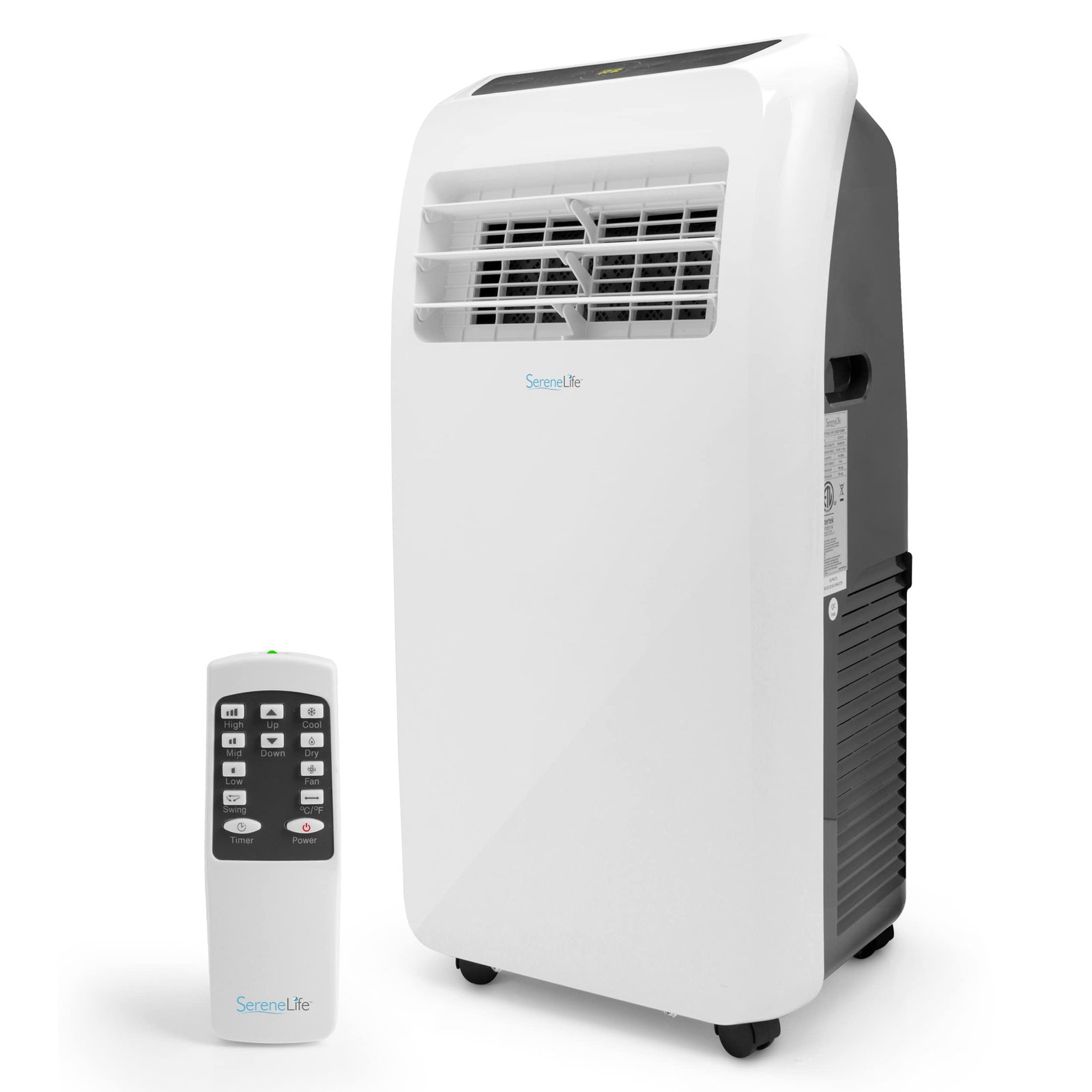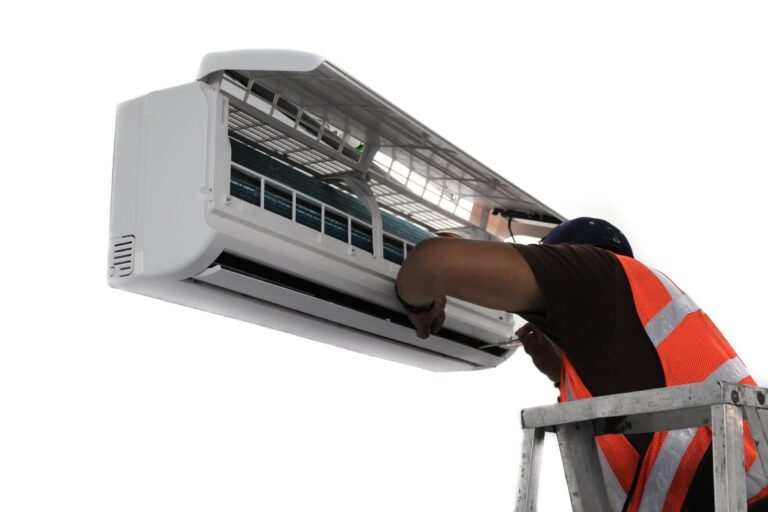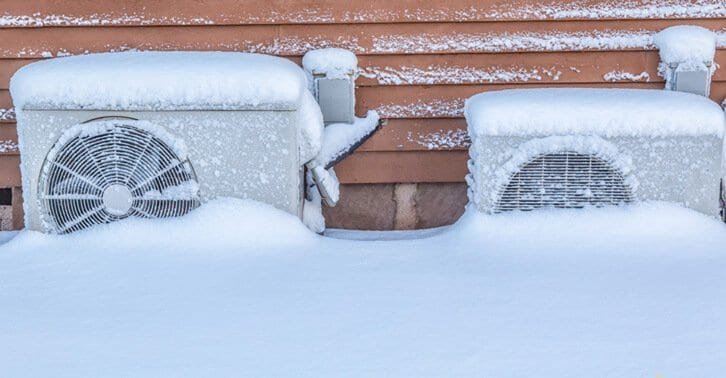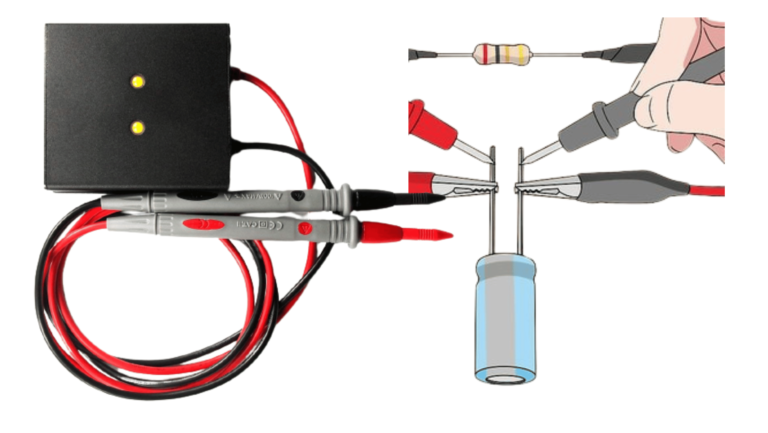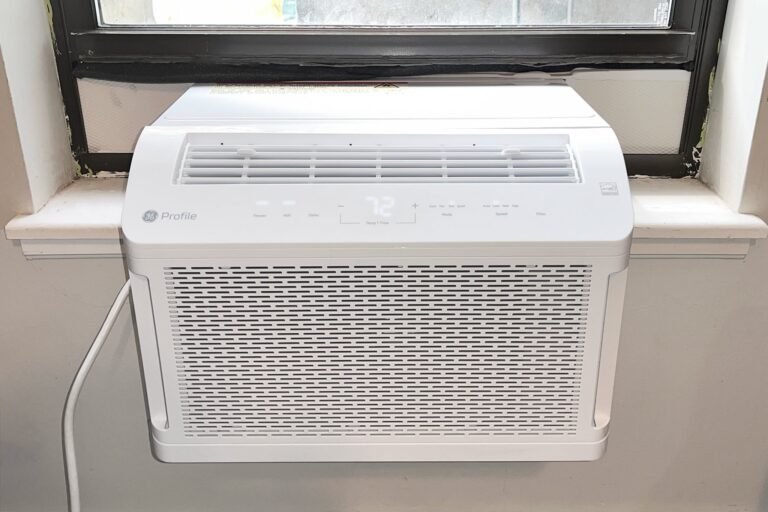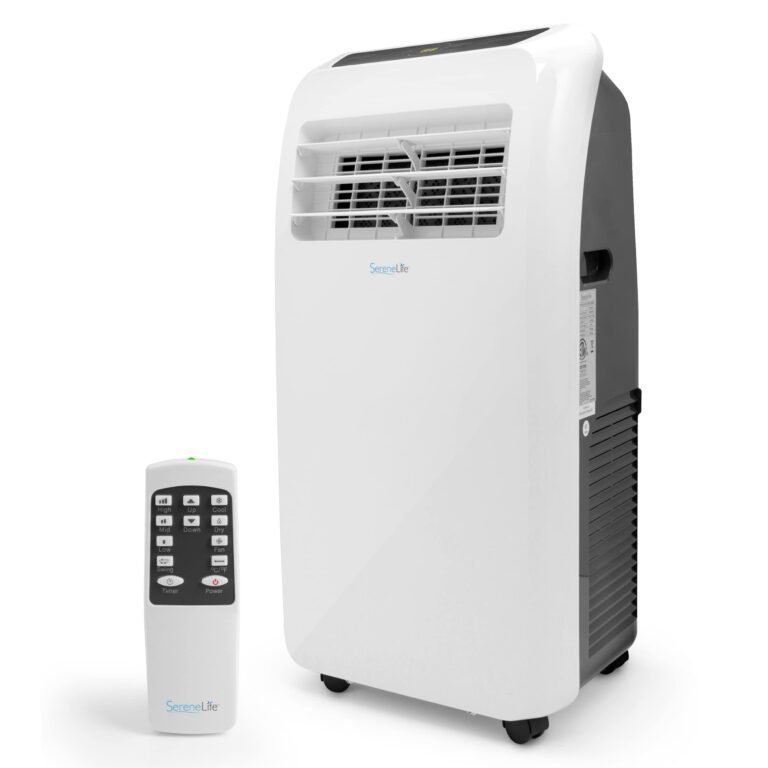Can I Use My Air Conditioner As a Dehumidifier: The Complete Guide
Yes, you can use your air conditioner as a dehumidifier. The air conditioning process naturally removes some moisture from the air, reducing humidity levels in the room.
However, it may not be as effective as a dedicated dehumidifier in extremely humid environments or during periods of high humidity. Additionally, using the air conditioner solely as a dehumidifier can lead to increased energy consumption and higher electricity bills.
It is recommended to invest in a standalone dehumidifier for more efficient humidity control.
Understand The Functionality Of An Air Conditioner
The functionality of an air conditioner, such as its ability to serve as a dehumidifier, stems from its design and operation. Air conditioners work by leveraging the refrigeration cycle, which involves compressing, condensing, expanding, and evaporating refrigerant to cool the air. By pulling in warm air from a room, the air conditioner passes it over its evaporator coil, where the refrigerant evaporates, absorbing heat and lowering the temperature. This cool air is then released back into the room, while the refrigerant, now in a gaseous state, is compressed and condensed to release the absorbed heat. The moisture in the air also condenses on the evaporator coil, reducing the humidity levels in the room. Thus, while an air conditioner primarily cools the room, it also plays a role in dehumidifying the air, making it a versatile appliance for maintaining a comfortable indoor environment.
Comparing Dehumidifiers And Air Conditioners
Can I Use My Air Conditioner As a Dehumidifier
In this blog post, we will explore the question of whether an air conditioner can be used as a dehumidifier. To understand this, let’s compare dehumidifiers and air conditioners:
| Differences between dehumidifiers and air conditioners |
| Dehumidifiers are specifically designed to remove excess moisture from the air, whereas air conditioners primarily cool the air and incidentally remove some moisture. |
| Dehumidifiers regulate humidity levels more precisely than air conditioners, making them more suitable for extremely humid environments. |
| Air conditioners may not be efficient in dehumidifying large areas or whole houses, as they focus more on temperature control. |
Now, let’s consider the pros and cons of using an air conditioner as a dehumidifier:
- Pros: Air conditioners can help reduce humidity levels to some extent, making the environment more comfortable.
- Cons: Air conditioners are not specifically designed for dehumidification and may not effectively remove excessive moisture. They may also consume more energy compared to standalone dehumidifiers.
In conclusion, while air conditioners can provide some dehumidification benefits, they may not be as efficient or effective as dedicated dehumidifiers. Therefore, if you are dealing with high humidity levels, it is advisable to invest in a proper dehumidifier for optimal results.
Assessing The Humidity Levels In Your Home
Assessing the humidity levels in your home is crucial to creating a comfortable living environment. Understanding the importance of measuring humidity levels can help you determine whether you can use your air conditioner as a dehumidifier.
There are several tools and methods available for measuring humidity in your home. A hygrometer is a commonly used device that provides accurate readings of the humidity levels in a room. These devices are typically small, portable, and easy to use. Another method is using a psychrometer, which measures humidity by comparing the temperature and dew point temperature.
Regularly monitoring the humidity levels in your home can help prevent issues such as mold growth, musty odors, and damage to furniture and other belongings. Maintaining optimal humidity levels can also improve indoor air quality and reduce the risk of respiratory problems.
By understanding the importance of measuring humidity and using the right tools and methods, you can effectively manage and control the humidity levels in your home to create a comfortable and healthy living environment.
Understanding The Limitations Of Air Conditioners
Understanding the Limitations of Air Conditioners
Air conditioners are primarily designed for cooling purposes, but many people wonder if they can be used as a substitute for dehumidifiers. However, it’s important to understand the limitations of using an air conditioner solely for dehumidification.
When you use an air conditioner to remove excess humidity, it can impact the cooling performance. Air conditioners work by cooling the air and removing moisture in the process. But when humidity levels are high, the air conditioner may struggle to effectively cool the room.
Moreover, using an air conditioner solely for dehumidification purposes can increase energy consumption. Air conditioners are optimized to cool the air, and their dehumidification capabilities are limited. They may not be as efficient as dedicated dehumidifiers in removing humidity from the air.
In conclusion, while air conditioners can help reduce humidity to some extent, they are not designed specifically for dehumidification. It’s best to use a dedicated dehumidifier for optimal results, especially in areas with high humidity levels.
Compatibility Of Your Air Conditioner For Dehumidification
Compatibility of Your Air Conditioner for Dehumidification
Determining the suitability of your existing air conditioner for dehumidification involves evaluating its capacity and capabilities. Firstly, check if your air conditioner has a dedicated dehumidification mode or feature. This mode allows the unit to extract moisture from the air without cooling it excessively. If your air conditioner doesn’t have a specific dehumidification mode, you can still utilize it for dehumidification by adjusting the temperature and fan settings. Lowering the temperature and setting the fan to a lower speed can help remove excess moisture. However, this method may not be as efficient as a dedicated dehumidifier. It’s important to note that using an air conditioner as a dehumidifier may impact its overall performance and lifespan. To optimize its dehumidification capabilities, ensure regular maintenance and clean the filters regularly. Consider investing in a separate dehumidifier for better performance and efficiency if excessive humidity is a recurring issue in your space.
Adjusting Temperature And Fan Settings
When using your air conditioner as a dehumidifier, it is important to adjust the temperature and fan settings for optimal dehumidification. The ideal temperature to set your air conditioner for dehumidification is between 70-75°F (21-24°C). This temperature range helps to remove excess moisture from the air without making the room too cold.
Additionally, setting the fan to circulate air effectively is crucial for dehumidification. It is recommended to set your air conditioner’s fan to the “auto” mode rather than the “on” mode. This allows the fan to turn on and off automatically as needed, which helps in both cooling and dehumidification.
To further enhance the dehumidification process, you can also use a standalone dehumidifier in conjunction with your air conditioner. This helps to remove excess moisture from the air, allowing your air conditioner to better focus on cooling the room.
Utilizing Energy Saving Features
Using your air conditioner as a dehumidifier can be an efficient way to manage your indoor humidity levels and save energy. Most air conditioners are designed to remove moisture from the airflow as they cool the room. By utilizing the energy-saving features of your air conditioner, you can ensure effective dehumidification while minimizing energy consumption.
One of the key benefits of utilizing the energy-saving modes of your air conditioner is reduced energy usage. Energy-saving modes such as eco or sleep mode can automatically adjust the temperature and fan speed to optimize energy efficiency. This not only helps in reducing your electricity bills but also extends the lifespan of your air conditioner.
To maximize energy-efficiency while dehumidifying, it’s recommended to set your air conditioner to a temperature slightly higher than your desired cooling setting. This will allow the unit to focus more on dehumidification rather than cooling, resulting in improved energy efficiency. Additionally, keeping your windows and doors closed while operating the dehumidifier mode can prevent outside moisture from entering, further enhancing its effectiveness.
| Benefits of utilizing energy-saving modes: |
|---|
| • Reduced energy usage |
| • Extended lifespan of your air conditioner |
| • Improved energy efficiency |
Maintenance And Cleaning Tips
Regular maintenance is essential to keep your air conditioner functioning efficiently as a dehumidifier. One important step is to clean the air filters. Clogged filters can hinder the performance of your unit, reducing its ability to remove moisture from the air. Remove the filters and gently wash them with mild soap and water. Allow them to dry completely before re-installing. This simple task should be done at least once a month in order to maintain optimal performance and prevent the buildup of dirt and dust. By regularly cleaning your air filters, you will help ensure that your air conditioner can effectively dehumidify your space, providing you with a comfortable and healthy environment.
Standalone Dehumidifiers
htmlCan I Use My Air Conditioner As a Dehumidifier
Standalone Dehumidifiers
Understanding the benefits and features of standalone dehumidifiers
When it comes to dehumidifying your space, standalone dehumidifiers provide a range of benefits and features that make them a reliable choice. These appliances are specifically designed to remove excess moisture from the air, helping to prevent issues such as mold, mildew, and musty odors.
One of the key advantages of standalone dehumidifiers is their ability to operate independently from other HVAC systems. Unlike air conditioners, which primarily focus on cooling, standalone dehumidifiers are dedicated to reducing humidity levels. This makes them a practical option for areas with high moisture content, such as basements, laundry rooms, and bathrooms.
When choosing a standalone dehumidifier, it’s important to consider the size of your space and the desired moisture level. Look for models that offer adjustable settings and automatic shut-off features. Additionally, energy efficiency should be a priority as it helps to minimize operating costs.
Overall, standalone dehumidifiers are an effective solution for addressing excess humidity. By investing in the right dehumidifier for your needs, you can create a comfortable and healthier living environment.
Tips For Reducing Humidity Without An Air Conditioner Or Dehumidifier
Humidity can be a common problem in many homes, especially during the hot and humid summer months. If you don’t have an air conditioner or dehumidifier, there are still ways you can reduce humidity naturally. Ventilation and airflow techniques can be effective in controlling moisture levels in your home.
One method is to open windows and doors to create cross-ventilation. This allows fresh air to circulate and helps to carry moisture out of the house. Installing ceiling fans or using portable fans can also aid in improving airflow.
Plants can act as natural dehumidifiers too. They absorb moisture through their leaves and release it through a process called transpiration. Placing houseplants strategically in rooms with high humidity can help to reduce moisture levels.
Another natural method is to use moisture-absorbing materials like charcoal or silica gel. These materials have a high surface area that attracts and absorbs moisture from the air. Placing them in closets, drawers, or damp areas can help to keep humidity levels down.
Lastly, it’s important to tackle the source of humidity. Using exhaust fans in kitchens and bathrooms will help to remove moisture at the source. Fixing any leaks or water-related issues in your home will also prevent excess humidity.
Hiring A Professional Dehumidification Service
Using an air conditioner as a dehumidifier is a common question among homeowners. Air conditioners do have dehumidification capabilities to some extent, but they may not be as effective as a dedicated dehumidifier. When it comes to hiring a professional dehumidification service, there are a few things to consider.
Firstly, when to consider professional assistance for dehumidification may depend on the severity of the humidity issue. If the humidity levels in your home are consistently high and affecting your comfort or causing damage, it might be time to seek professional help.
Professional dehumidification companies offer a range of services to tackle excess humidity. These services can include humidity level assessment, which helps determine the extent of the issue. They can also provide recommendations for dehumidification systems based on the size and needs of your space. Furthermore, these companies offer installation and maintenance of dehumidifiers to ensure optimal performance.
By hiring a professional dehumidification service, you can have peace of mind knowing that the humidity issue in your home will be addressed effectively. Professional assistance can provide you with the expertise and specialized equipment needed to maintain a comfortable and healthy indoor environment.
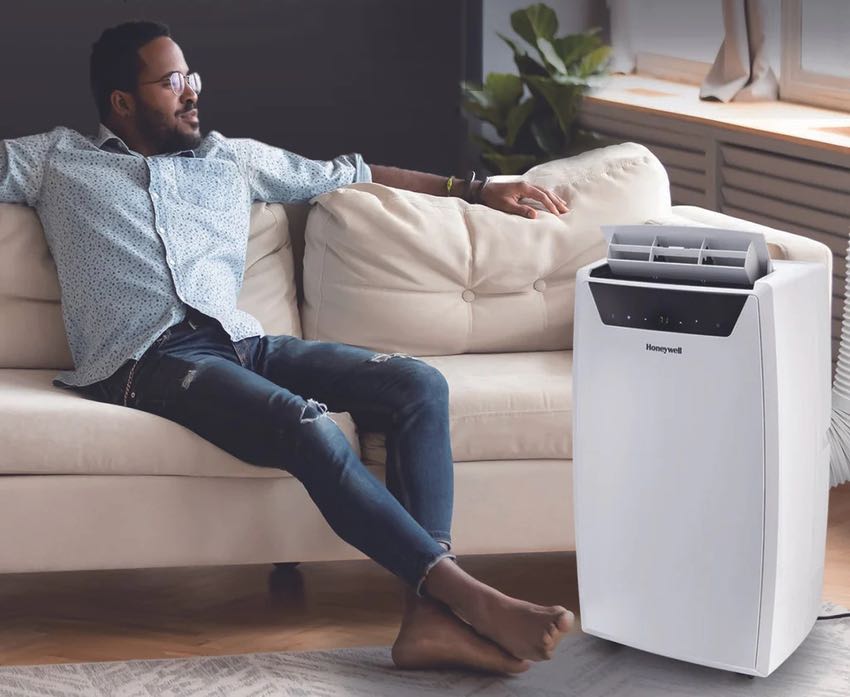
Credit: www.protoolreviews.com
Frequently Asked Questions Of Can I Use My Air Conditioner As A Dehumidifier
Can An Air Conditioner Be Used As A Dehumidifier?
Yes, an air conditioner can remove humidity from the air, acting as a dehumidifier. As the AC cools the air, it also removes moisture, reducing the humidity in the room. However, it may not be as effective as a dedicated dehumidifier in extremely humid conditions or large spaces.
How Does An Air Conditioner Dehumidify The Air?
Air conditioners dehumidify the air through the cooling process. As warm air passes over the evaporator coil, the moisture in the air condenses onto the coil and drips into a collection pan or drain line. The cooled and dehumidified air is then circulated back into the room, helping to lower the overall humidity level.
Can I Rely Solely On My Air Conditioner To Dehumidify My Home?
While an air conditioner can effectively lower humidity levels, it may not suffice in areas with high humidity or during extremely humid weather conditions. In such cases, using a dedicated dehumidifier is recommended. A dehumidifier specifically designed for moisture removal can more efficiently control humidity and prevent mold and mildew growth.
Conclusion
Using your air conditioner as a dehumidifier can be a cost-effective solution to combat excess humidity in your home. By lowering the temperature and pulling out the moisture from the air, air conditioners with dehumidification capabilities can create a more comfortable living environment.
However, it is important to note that air conditioners are primarily designed for cooling, and may not be as effective as dedicated dehumidifiers. If you are dealing with high humidity levels, it is recommended to invest in a standalone dehumidifier for optimal results.

